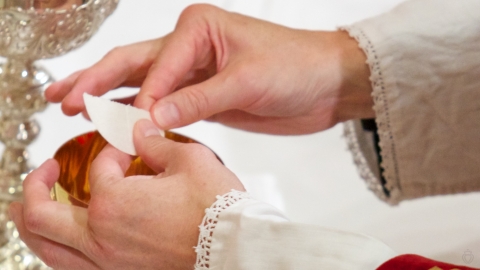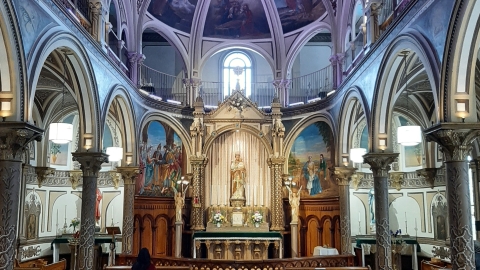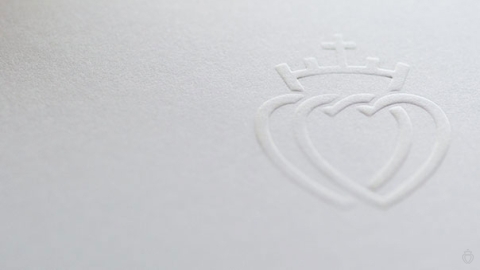The Canadian Bishops and the Federal election

A critique of the 2015 Federal Election guide issued by the CCCB. No distinction is made between those matters that are intrinsically evil and those that bear no moral weight at all. What we need now are courageous religious leaders like Bishop Ignace Bourget of Montreal (1799-1885) who was not afraid to publicly remind the people of the rights of the Church to interfere in politics.
As the 2015 Federal elections approach, Catholics all over the country are looking for guidance from their pastors regarding the choices that they will have to make on October 19. In our previous posting, we gave the general principles that govern the moral obligation to vote. We also went so far as to cover the critical topic by which a Catholic would be morally allowed to vote for a candidate whose platform contains some evils with which he does not agree, but which are certainly lesser evils than the platform of the opponent.
Now let us deal with the attitude of the Catholic Church in our country regarding the elections. Looking at different documents published over the past century, we gather that Canadian bishops and priests have been used to giving guidelines to their flock at the time of elections. Since the beginning of the parliamentary system in Canada, Church leaders, concerned for the care of their flock, have regularly addressed the issue of the moral obligation to vote. The 1919 Appendix to the Roman Ritual, published by order of the Fathers of the First Plenary Council of Quebec, gives some specific guidelines for the official announcement made by the parish priest on the Sunday preceding Election Day.
During the course of this week, you will be called upon, Dear Brethren, to elect a deputy (deputies) to represent this electoral division in Federal Parliament (or in the Provincial Legislature).
Realize then that Almighty God will require you to render an account of all your thoughts, words and actions during elections as well as at all other times.
While giving to the political interests of the country all the attention which they deserve, while trying to appreciate at their true worth the persons and principles involved, be ever mindful lest the business of this world, which passes like a shadow, should cause you to forget the one necessary business of preparation for an eternity which shall never pass and which is your last end.
Hear the candidates, who come to express their platform in your midst, with the calm polite attention which the questions deserve. Be on the lookout however for false principles and deceit. Should you encounter such, the most effective means of protesting is to quit the meeting.
And, as all light comes to us from God, do not forget, Dear Brethren, to pray and to have prayers said in your homes in order that candidates, officers, and voters may conduct themselves with a clean conscience.”
We find the same recommendations almost word for word in the Acts and Decrees of the Fifth Synod of Ottawa, held in 1949. On top of that, a strong reminder is given to the priests to “refrain from discussing political matters in public, especially from the pulpit.” But “They may do so when invited by their bishops in order to safeguard the interests of religion in a particular instance.”
In any case, before the Council of Vatican II, it was always understood that the priests have the special duty “to bring to the attention of the faithful certain moral principles which are sometimes forgotten at the time of an election.”
Besides the reminding of the common rules of prudence at the time of the elections, bishops of old had some other concerns, like for example to warn against the evil of drunkenness, with its consequences, at the time of elections; then to warn against perjury; and lastly to clearly condemn any kind of selling of the votes.
But now what are the concerns of the Canadian Bishops on the eve of the 2015 Elections? It seems that drunkenness, perjury or the selling of votes are now things of the past, or at least are not a major concern for our pastors.
So, what are the advices given by the Canadian Bishops on the eve of the Federal elections? We find the answer in a document published by the CCCB that claims to provide guidance to lay faithful on how to vote for politicians.
The first section of the document deals with the respect for life and human dignity, and as it says, “from conception to natural death.” It starts by “demanding the right to life for even the smallest among us – the human embryo and the foetus”. We were expecting a strong reminder of the rights to life and a clear condemnation of abortion but we find here rather a very weak and shallow statement that is very disappointing. It seems that the Canadian bishops don’t want to acknowledge the fact that Canada has one of the worst legislations in the world regarding abortion, with absolutely no protection of the unborn. They also don’t want to report the fact that two of the three major Parties running in the Federal Elections are following an aggressive policy against the unborn babies by not allowing any of their candidates to vote against abortion. How is it possible that the Official guide published by the Canadian Bishops seems to ignore that fact that is public knowledge? The answer to that question may be found in an article from Pete Baklinski from Lifesitenews, which says that: “Two protestant magazines with charitable tax-status did include our ads [the ads that give a list of the pro-life candidates across the country] without any concerns about whether or not they were too political or fears that there would be any legal problems,” Jeff Gunnarson of Campaign Life Coalition (CLC), the political arm of the country’s pro-life movement, told LifeSiteNews. “But when it came to the Catholic venues, our ads were turned down either for ideological reasons or because of a fear of risking their charitable tax-status.” This is very strange, because, according to the same article from Lifesitenews, an opposite legal advice was given by the same law firm to two Protestant Churches about the risk of putting in jeopardy their charitable status if they were to post in their papers the ads provided by CLC. So could Diocesan newspapers give us the real reasons why they don’t want to promote prolife candidates in their magazines?
This is really sad, because such silence will be interpreted as blanket permission for Catholics to cast their vote for openly pro-abortion and pro-gay candidates.
However, we have to give credit to the document from the CCCB for encouraging the faithful to raise their voices against euthanasia, but we wish that the same strong word would have been used to condemn abortion. Instead of that, the bishops have only requested to “demand the right of life for even the smallest among us.”
We report that, in the said document, nothing is said about the evil of contraception, a historical sticking point for the Canadian Bishops, who rejected in 1968 the Encyclical Letter Humanae Vitae by means of the infamous Winnipeg Statement, by which they rejected Paul VI condemnation of contraception. As a matter of fact, the Canadian bishops have never formally retracted the Winnipeg Statement. This explains their weak attitude in the defense of the life of the unborn.
Surprisingly, the document lists a new kind of sin against life in the document, namely a condemnation of capital punishment? For the record, the Catholic Church has always recognized the legitimacy of capital punishment, for the sake of protecting the common good of the citizens. In his Summa (IIa, IIae, Qu 64, ad 2 &3), St. Thomas Aquinas gives clear principles on that topic.
Then the remainder of the document is devoted to topics that sound appealing to secular concerns, like the environment, the safeguard of immigrants and workers’ rights, the elimination of nuclear weapons, pay equity between men and women, facilitating access to drinking water, and solidarity and dialogue with Indigenous communities.
But what really sticks out about that guide, is not so much in what it says, but in what it doesn’t say. It gives lots of attention to problems that are real but not relevant to the Catholic Faith and, at the same time, it is seriously lacking by its silence on the evils of our time that are destroying our Western world, that is to say: divorce, abortion, contraception, homosexuality and transgender etc…
Moreover, this guide is particularly disturbing because it makes no distinction between those matters that are intrinsically evil, like the crimes against life, and those that bear no moral weight at all, such as reducing our dependence on fossil fuels.
The Federal Election Guide is a typical example of the great confusion among the leaders of the Catholic Church, and is a direct consequence of the abandonment of the principles of the Social Reign of Our Lord Jesus Christ at the favour of the declaration Dignitatis Humanae of Vatican II on religious liberty. When Our Lord is no more the King of the society, men follow all kinds of dreams and they lose their focus on the essential.
What our country needs the most right now, is courageous religious leaders who, following the example of Bishop Ignace Bourget of Montreal (1799-1885) will uphold the rights of the Church as guardian of public morals. In the middle of the 19th century, that holy bishop was not afraid to publicly remind the people of the rights of the Church to interfere in politics, and to remind the country of the absolute rights of God over society, against the liberal press: “The Liberal paper is the one that claims, among other things, to be free in its religious and political opinions; that would like the Church to be separate from the State; and that in a word refuses to recognize the right of religion to have anything to do with politics, even when the interests of faith and morals are at stake.”
Let us pray that the good Lord will give to Canada bishops full of courage and zeal, following the example of Bishop Bourget!
A priest of the Society of Saint Pius X




